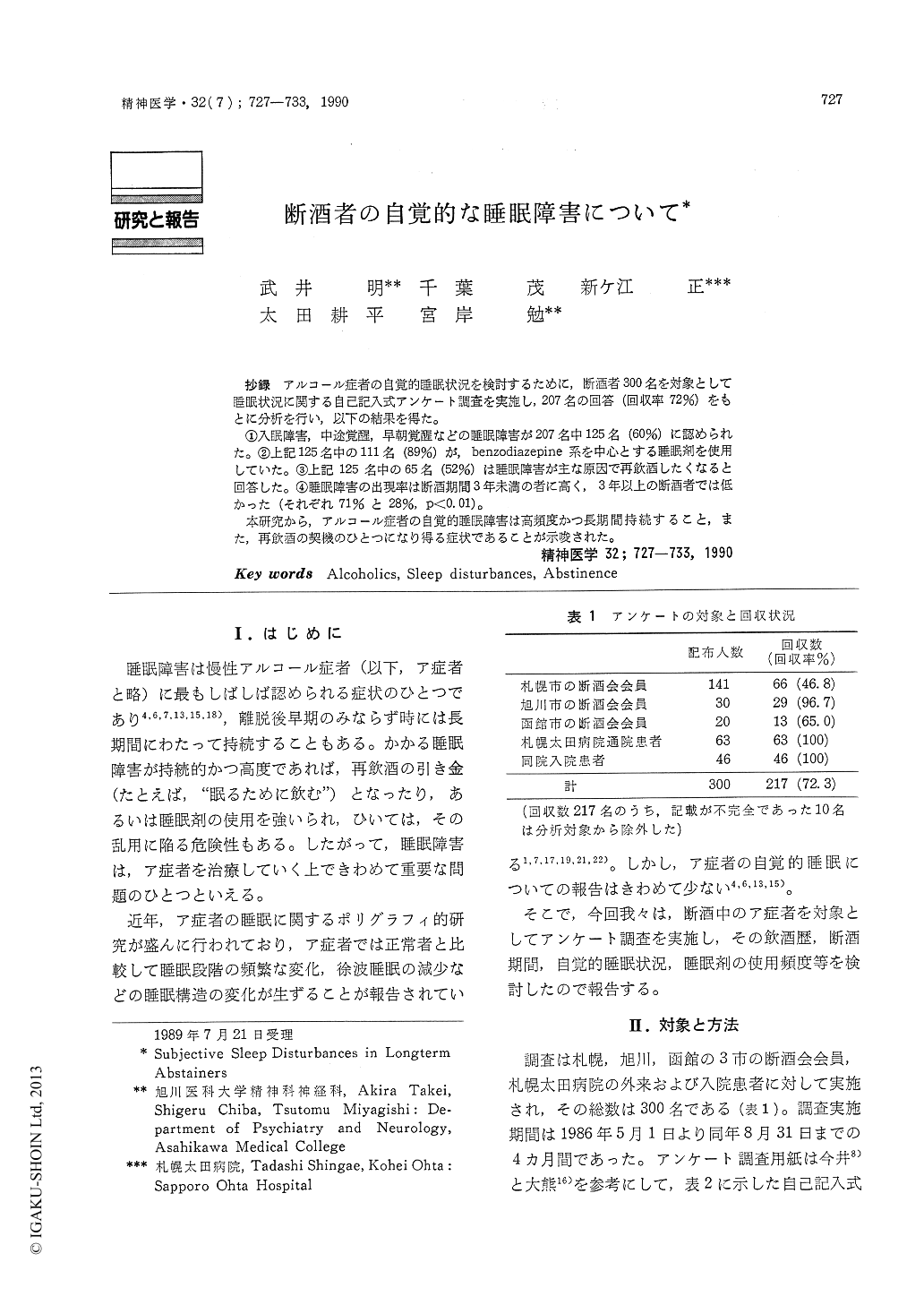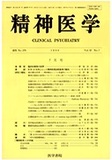Japanese
English
- 有料閲覧
- Abstract 文献概要
- 1ページ目 Look Inside
抄録 アルコール症者の自覚的睡眠状況を検討するために,断酒者300名を対象として睡眠状況に関する自己記入式アンケート調査を実施し,207名の回答(回収率72%)をもとに分析を行い,以下の結果を得た。
①入眠障害,中途覚醒,早朝覚醒などの睡眠障害が207名中125名(60%)に認められた。②上記125名中の111名(89%)が,benzodiazepine系を中心とする睡眠剤を使用していた。③上記125名中の65名(52%)は睡眠障害が主な原因で再飲酒したくなると回答した。④睡眠障害の出現率は断酒期間3年未満の者に高く,3年以上の断酒者では低かった(それぞれ71%と28%,P<0.01)。
We studied the subjective estimate of sleep in 300 alcoholics, using check lists which were given to each patients (207 answerers, 72.3% recovery).
The results were as follows: 1. A variety of sleep disturbances was seen in 125 alcoholics (60.4%).
2. Habitual use of several kinds of hypnotics (benzodiazepines, levomepromazine, etc.) was observed in 111 alcoholics (88.8%).
3. Sixty-five alcoholics out of 125 (52.0%) answered that the sleep disturbances increased their craving for alcoholic beverages.
4. The alcoholics who had abstained for less than 3 years showed significantly higher incidence of sleep disturbances than those who had abstained for 3 years or more (70.7% and 28.0%, respectively; p<0.01).
The present study suggests that sleep disturbance is a serious problem for alcoholics and results in failure in their efforts to abstain from alcohol.

Copyright © 1990, Igaku-Shoin Ltd. All rights reserved.


